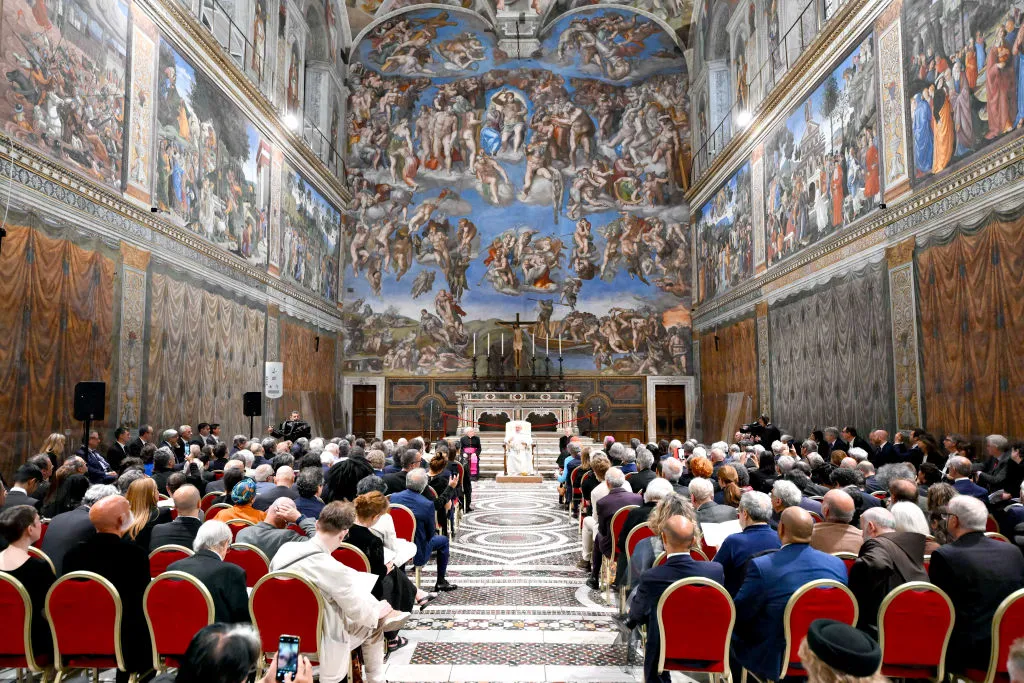
Vatican Media via Vatican Pool/Getty Images
Almost six decades ago the then-Pope, Paul VI, organized a meeting of artists in the Sistine Chapel, an attempt to help usher the Vatican’s vast collection of art into the modern age. Last week Paul VI’s successor, Pope Francis celebrated 50 years of the Vatican Museum’s expansion in to modern and contemporary art with a similar assembly in the same place—and the guest list might have made prior Popes wince.
“I was very surprised to be invited,” the artist Andres Serrano told the New York Times. In 1987 Serrano debuted the photograph Piss Christ, depicting a plastic crucifix against a red background floating in a vat of urine. Conservatives and religious organizations lambasted Serrano for presumed blasphemy. But many years have passed since then, and the Church has broadened its patronage of all types of art, including the controversial. In fact, Pope Frances even blessed Serrano and gave him a “cheery thumbs up” which the artist said surprised him even more than the invitation.
When Paul VI opened the Vatican’s Modern and Contemporary Collection in 1973, work by artists including Francis Bacon, Marc Chagall, and Rinko Kawauchi joined the likes of Michelangelo and Botticelli. For this year’s anniversary, the Church again aimed to deepen its relationship with the arts. Writers and musicians were included to “broaden out the engagement of the church with artists,” Bishop Paul Tighe, secretary in the Vatican’s culture and education office, told The Times.
As for who was invited, Tighe said there was no “master plan” though “we had some favorites we wanted to be there.” Tighe didn’t specify who the Vatican’s favorite artists are.
At the gathering Pope Francis encouraged artists to remember the poor, “who have need of art and beauty,” and usually “have no voice to make themselves heard” and pressed on the collected group of artists to focus on social justice and environmental issues.
“There are few religious leaders who have been so strong and so bold and so brave when it comes to tackling climate change,” David Van Reybrouck, the Belgian cultural historian and author, told the Times. “The density of artistic talent in a few square meters has rarely been so high,” he said.


